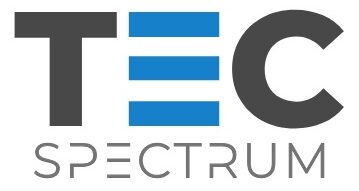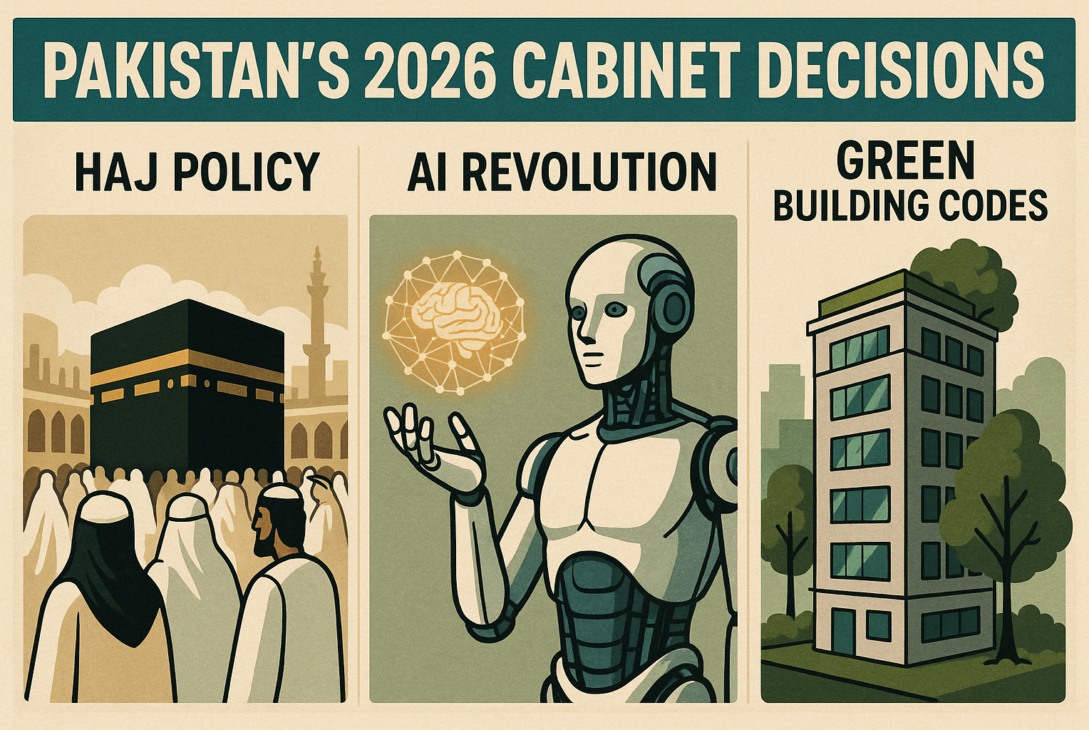In a landmark meeting chaired by Prime Minister Shehbaz Sharif, the federal cabinet of Pakistan unveiled transformative policies set to shape the nation’s future in 2026. These include the Haj Policy 2026, the National Artificial Intelligence (AI) Policy, and the Green Building Code of Pakistan (GBCP). Each policy addresses critical areas—pilgrimage management, technological innovation, and sustainable infrastructure—positioning Pakistan as a forward-thinking nation. Additionally, the cabinet tackled the ongoing sugar shortage by fixing ex-mill and retail prices. This article dives deep into these decisions, their implications, and how they align with Pakistan’s long-term goals for development and global competitiveness.
Haj Policy 2026: Streamlining Pilgrimage for Millions
The Haj Policy 2026 introduces a robust framework to enhance the pilgrimage experience for millions of Pakistani Muslims. With a focus on transparency, efficiency, and inclusivity, the policy allocates 70% of the Haj quota to the government and 30% to private operators, ensuring a balanced approach to pilgrimage management.
Key Features of the Haj Policy 2026
- Quota Allocation: The 70-30 split ensures the government oversees the majority of pilgrims while allowing private operators to cater to a significant portion, fostering competition and service quality.
- Accountability for Private Operators: Private companies that underperformed in previous years must accommodate affected pilgrims in 2026, ensuring accountability.
- Third-Party Validation: Independent audits will monitor all Haj operations, from payments to service delivery, ensuring transparency.
- Digital Transformation: The policy introduces advanced digital tools, including:
- Pak Haj Mobile App for real-time updates and support.
- Digital wristbands and mobile SIMs for better tracking and communication.
- Hardship Quota: 1,000 seats are reserved for hardship cases, ensuring inclusivity for underprivileged pilgrims.
- Enhanced Services: Upgraded lodging, food arrangements, and emergency compensation mechanisms aim to improve pilgrim satisfaction.
- Competitive Selection of Assistants: Assistants will be chosen through rigorous testing, ensuring only qualified individuals support pilgrims.
Why It Matters
The Haj Policy 2026 reflects Pakistan’s commitment to improving one of the world’s largest religious pilgrimages. By leveraging technology and enforcing accountability, the policy ensures a seamless, transparent, and inclusive experience for pilgrims. For those planning to perform Haj, these changes promise better organization and support, making the spiritual journey more accessible and efficient.
National AI Policy 2025: Building a Tech-Driven Future
The National AI Policy 2025 is a bold step toward positioning Pakistan as a global leader in artificial intelligence. With a goal to train 1 million AI professionals by 2030, the policy aims to democratize AI access, enhance public services, and create new opportunities for innovation and employment.
Core Objectives of the AI Policy
- Massive Skill Development: Training 1 million professionals by 2030 to build a robust AI workforce.
- Innovation Funding: Establishing an AI Innovation Fund and AI Venture Fund to support startups and private-sector initiatives.
- Civic and Commercial Impact:
- Develop 50,000 AI-driven civic projects to improve public services.
- Create 1,000 local AI products within five years to boost economic growth.
- Education and Inclusion:
- Distribute 3,000 annual AI scholarships to nurture talent.
- Promote inclusion by ensuring accessible education for women and differently-abled individuals.
- Research and Development: Facilitate 1,000 AI research projects to drive innovation.
- Cybersecurity and Global Compliance: Strengthen cybersecurity protocols and align with international AI regulations to ensure ethical and secure AI adoption.
- Governance: An AI Council and a Master Plan and Action Matrix will oversee implementation, ensuring accountability and progress.
Why This Policy is a Game-Changer
Prime Minister Shehbaz Sharif emphasized, “Our youth are Pakistan’s greatest asset.” By investing in AI education and infrastructure, the policy taps into this potential, creating opportunities for young Pakistanis to compete in the global tech landscape. The focus on inclusivity ensures that marginalized groups, including women and differently-abled individuals, have access to AI education and resources. Additionally, the emphasis on cybersecurity and global partnerships positions Pakistan as a responsible player in the AI ecosystem.
For businesses, the AI Innovation and Venture Funds provide critical financial support to develop cutting-edge solutions. The creation of 50,000 civic projects will transform public services, from healthcare to education, while the 1,000 local AI products will drive economic growth and innovation.
Green Building Code of Pakistan: Pioneering Sustainable Construction
The Green Building Code of Pakistan (GBCP) and Rainwater Harvesting Provisions mark a significant step toward sustainable urban development. These standards apply to all new buildings with four or more floors, emphasizing energy efficiency, water conservation, and environmental sustainability.
Highlights of the Green Building Code
- Mandatory for New Structures: All buildings with four or more floors must comply with the GBCP, ensuring widespread adoption of sustainable practices.
- Energy Efficiency:
- Integration of solar design and renewable energy sources.
- Use of energy-efficient lighting to reduce consumption.
- Green Features:
- Green roofs to enhance insulation and reduce urban heat.
- Rainwater harvesting systems mandatory for residential, commercial, and industrial structures to conserve water.
- Water Conservation: Rainwater harvesting provisions address Pakistan’s water scarcity challenges, promoting sustainable water management.
Why Green Building Codes Matter
As Pakistan urbanizes rapidly, the demand for sustainable infrastructure has never been higher. The GBCP ensures that new constructions are environmentally friendly, reducing energy consumption and mitigating the impact of climate change. By mandating rainwater harvesting, the policy addresses water scarcity, a critical issue in Pakistan. These measures not only benefit the environment but also reduce long-term operational costs for building owners, making them a win-win for both the planet and the economy.
Addressing the Sugar Shortage: Price Stabilization
Amid a nationwide sugar shortage, Prime Minister Shehbaz Sharif announced fixed prices to stabilize the market. The ex-mill sugar rate is set at Rs165 per kilogram, while the retail price is capped at Rs173 per kilogram. This decision aims to ensure affordability and availability for consumers while addressing supply chain challenges.
Implications for Consumers and Businesses
By fixing sugar prices, the government aims to curb inflation and ensure that this essential commodity remains accessible to all. For businesses, particularly in the food and beverage sector, stable prices provide predictability, enabling better planning and cost management.
Broader Implications of the Cabinet’s Decisions
The 2026 cabinet decisions reflect Pakistan’s commitment to addressing diverse challenges—religious pilgrimage, technological advancement, environmental sustainability, and economic stability. By aligning these policies with global standards, such as international AI regulations and sustainable building practices, Pakistan is positioning itself as a progressive nation. The focus on inclusivity, whether through hardship quotas in the Haj Policy or scholarships for women in AI, underscores the government’s dedication to equitable growth.
Links to Related Resources
- Learn more about global AI trends at MIT Technology Review.
- Explore sustainable building practices at U.S. Green Building Council.
Conclusion: A Roadmap for Pakistan’s Future
The federal cabinet’s decisions for 2026 lay the foundation for a more connected, innovative, and sustainable Pakistan. The Haj Policy 2026 ensures a seamless pilgrimage experience, the National AI Policy positions Pakistan as a tech leader, and the Green Building Code promotes environmental stewardship. Combined with efforts to stabilize sugar prices, these policies address both immediate needs and long-term goals.













